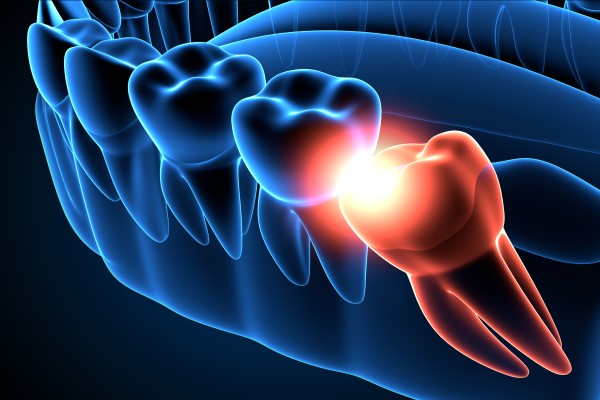Who Needs a Wisdom Tooth Extraction
The idea of getting a is something that can spark fear in people because it does involve the removal of very embedded teeth; however, modern technology has made the procedure less painful. Additionally, the in-depth training that general dentists undergo ensures that the process will be efficient and quick.
For the most part, general dentists begin checking for wisdom tooth eruption in patients that are as young as age 16. Sometimes, eruption goes unnoticed because there are no symptoms. However, other times, there are noticeable symptoms, which indicate that extraction is necessary. These symptoms may include soreness due to the force of other teeth shifting to make room, swelling, inflammation, and even bleeding of the gums.
It is important to note that while it is common to need a wisdom tooth extraction, not everyone experiences the need. Some people never experience eruption, while others may experience it without a need for the teeth to actually be pulled. Keep reading to find out when wisdom tooth extraction is necessary and who might require it.
Understand who needs a wisdom tooth extraction
Below is a quick overview of wisdom tooth extraction, including who needs it and when. This information can be quite helpful to individuals who are not sure when wisdom teeth need to be removed.
Pain
Individuals who experience pain, discomfort, or irritation as a result of their wisdom teeth erupting definitely require an extraction. More often than not, the pain is unbearable, which can also lead to headaches, jaw pain, and neck pain. The pain may feel sharp or dull, both of which can be a sign that the teeth are pushing up against the other teeth, causing problems.
Pain occurs because once the wisdom teeth erupt, the other back molars are typically forced to shift in order to make room. This can be painful on those teeth because the entire tooth and roots are having pressure applied to them.
To deal with pain or discomfort until wisdom tooth extraction takes place, it is ideal to utilize over-the-counter pain relievers and ice packs. This can also help with swelling or inflammation around the eruption site.
Impaction
Another common problem with wisdom teeth is impaction. When they erupt, they can get stuck behind other teeth or beneath the jawbone. Both scenarios can be very dangerous and can result in cavities and infections beneath the soft tissues. This can lead to a need for surgery or serious treatment aside from wisdom tooth extraction. Signs of impaction might include bleeding, severe pain, and inflammation.
Crowding
Those who begin to experience crowding will require wisdom tooth extraction. When the wisdom teeth erupt, they can start to put pressure on the normal teeth and can lead to shifting and crowding, both of which can be harmful and, as stated earlier, painful.
Crowding can require orthodontic treatment and may lead to bad oral health as the teeth are more prone to bacterial build-up. In order to avoid crowding, which can lead to other problems, it is ideal to undergo wisdom tooth extraction. In most cases, the wisdom teeth can be removed before too much of a shift takes place, thus eliminating the need to have the normal teeth adjusted via orthodontic treatment.
Infection
Sometimes, when wisdom teeth erupt, they become infected behind the soft tissues. The oral cavity is not necessarily equipped to handle the extra set of teeth, which, as stated above, can result in crowding, impaction, and pain, all of which may be the result of an infection. If the normal teeth or gums start to become infected with bacteria then the dentist will definitely require a wisdom tooth extraction to be done.
What else to know
When it comes to wisdom tooth extraction, it is important to understand that the symptoms that occur due to eruption will be eliminated once the wisdom teeth are actually removed. Of course, there is a period of recovery immediately after the extraction, which can be uncomfortable for quite some time, but long-term, there will not be any pain, inflammation, or swelling.
Find out more from a general dentist
When looking for more information on wisdom tooth extraction, it is best to consult with an experienced general dentist. Patients can ask questions and go over concerns, both of which may be useful when preparing for the appointment. Reach out today to get scheduled for a consultation appointment or to learn more.
Request an appointment here: https://www.mysaratogadentist.com or call My Saratoga Dentist PLLC at (518) 675-3094 for an appointment in our Saratoga Springs office.
Check out what others are saying about our dental services on Yelp: .
Recent Posts
Tooth extraction isn’t generally that complex of a procedure unless we’re talking about wisdom tooth removal. While normal and even surgical extractions can be standard practice, having your wisdom teeth taken out can be a much more involved task for both you and your dentist, depending on the situation behind the removal. It is not…
A wisdom tooth extraction might be recommended if one of your wisdom teeth develops issues or erupts abnormally. These are the last set of molars to emerge, and they usually come in around the ages of 17 to 21. It can take up to two weeks to recover from having wisdom teeth extracted, depending on…
For patients who have been suffering from a damaged or infected tooth, finally getting the tooth extracted can feel like a relief. However, bleeding after a tooth extraction can be worrisome and inconvenient. Before a patient undergoes a tooth extraction, it can be helpful to know what to expect in terms of bleeding.After a tooth…
Are you thinking of your option for replacing missing teeth with dentures? Well then, you are on your way to having a new and appealing smile. People all around the world have had and continue to have success with this treatment. Dentures can be an effective way to fill in embarrassing gaps in the mouth.Dentures,…


